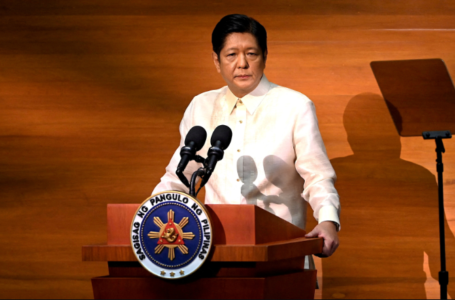Beijing intensifies diplomatic tensions, warning nations against breaching its One China policy following Taiwan’s election results.
BEIJING: China summoned the Philippine ambassador on Tuesday (Jan 16) in response to President Ferdinand Marcos Jr.’s congratulatory remarks for Taiwan’s president-elect, Lai Ching-te, following his recent election victory.
China’s foreign ministry expressed dissatisfaction, condemning the Philippines and other countries like the United States, Japan, Singapore, and European nations for congratulating Lai. According to foreign ministry spokesperson Mao Ning, Assistant Minister Nong Rong met with the Philippine envoy to demand a “responsible explanation” and issue a stern rebuke.
“The Chinese side is strongly dissatisfied and resolutely opposes these remarks,” Mao declared, reiterating that Beijing views Taiwan as part of its territory and opposes any official recognition or communication with the island.
A Global Response Sparks Tensions
Taiwan’s president-elect Lai Ching-te, who leans toward independence, secured a decisive victory in the democratic island’s recent elections. Beijing considers congratulatory messages from foreign leaders a violation of its One China policy and interference in its internal affairs.
“Anyone violating the One China principle is infringing upon China’s sovereignty and will face opposition from the Chinese people and the international community,” Mao stated.
In a social media post, President Marcos congratulated Lai and emphasized his hopes for “close collaboration.” Mao denounced the remarks, describing them as “a serious violation” of the One China principle and an act of interference. She urged the Philippines to cease what she termed “wrongful words and deeds.”
The Philippine foreign ministry later reaffirmed its adherence to the One China policy, clarifying that Marcos’s remarks aimed to acknowledge Taiwan’s hospitality to over 200,000 Filipino workers.
A Broader Fallout
China’s reaction follows recent disputes with the Philippines, as Manila strengthens military ties with the United States. This diplomatic clash mirrors Beijing’s broader displeasure with nations issuing similar congratulations.
U.S. Secretary of State Antony Blinken, Japanese Foreign Minister Yoko Kamikawa, and Singapore’s Ministry of Foreign Affairs were among those who extended congratulatory messages to Taiwan. Singapore, in particular, received a sharp demarche from Beijing, which urged adherence to the One China principle.
Taiwan’s foreign ministry, however, welcomed Marcos’s remarks, emphasizing shared democratic values and a commitment to deepening bilateral ties. Despite lacking formal diplomatic relations, Taiwan and the Philippines maintain unofficial links through their respective cultural and economic offices.
As Beijing heightens its response, global attention remains on its handling of Taiwan’s evolving political and international dynamics.








